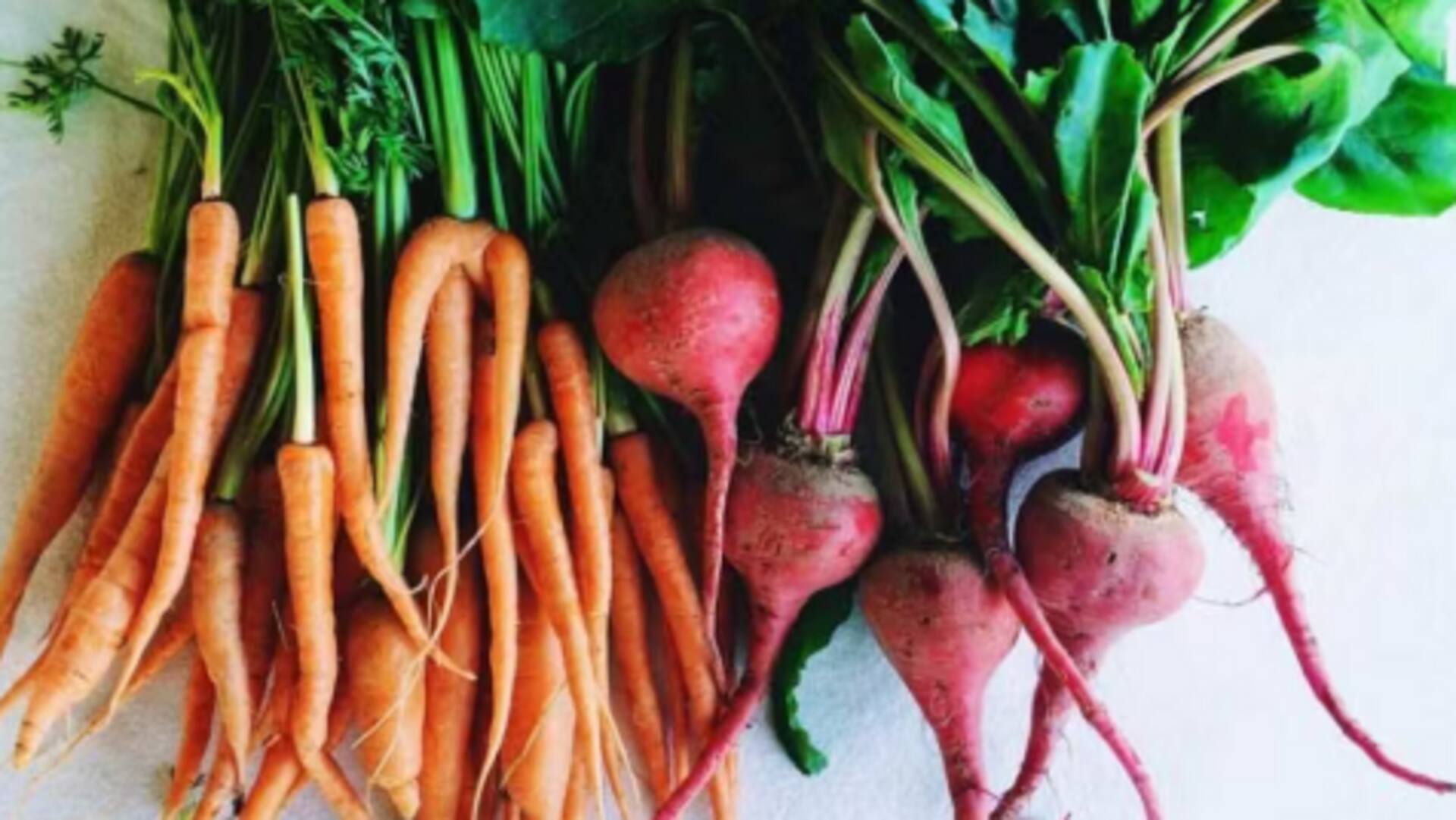
Carrot vs. beetroot: Antioxidant titans tussle
What's the story
Carrots and beetroots are powerhouses of nutrition and antioxidant activity, making them stars in the world of health and nutrition. These vibrant veggies offer a plethora of health benefits, from supporting vision to boosting immunity. This article dives into a head-to-head comparison of carrots and beetroots, highlighting their nutritional content, health benefits, and versatility in the kitchen.
Nutrition
Nutritional showdown: Carrot meets beetroot
Carrots are rich in beta-carotene, which gives you 104% of your daily vitamin A needs per 100 grams, and it helps your vision and immunity. Beetroots provide about 20% of your daily folate needs per 100 grams, which is important for DNA repair. Both are low in calories but high in fiber.
Antioxidants
The antioxidant arena: Colorful combatants
The deep hues of carrots and beetroots aren't just eye-catching; they're a sign of antioxidant-rich profiles. Carrots are packed with carotenoids, including beta-carotene. These antioxidants fight oxidative stress and inflammation. Beetroots contain betalains — pigments with powerful antioxidant and anti-inflammatory properties. So, while both vegetables provide substantial health benefits through their antioxidants, the types vary because of their distinct phytochemical compositions.
Culinary use
Culinary versatility: From salads to smoothies
Carrots are great raw as snacks or shredded into salads for a sweet crunch. They also develop a deeper sweetness when cooked in soups and stews. Beetroots, despite their natural earthiness, can shine in both sweet and savory dishes. Roast them to bring out their sweetness or pickle them for an acidic kick in salads. They pair well with a variety of flavors.
Gardening tips
Growing at home: Garden giants
For those who want to cultivate these nutritional powerhouses at home, both carrots and beetroots are pretty easy to grow with some basic gardening knowledge. Carrots love loose, sandy soil to stretch out and grow long, straight roots. Beetroot is a bit more adaptable, but it also loves deep, well-drained soil with lots of organic matter.